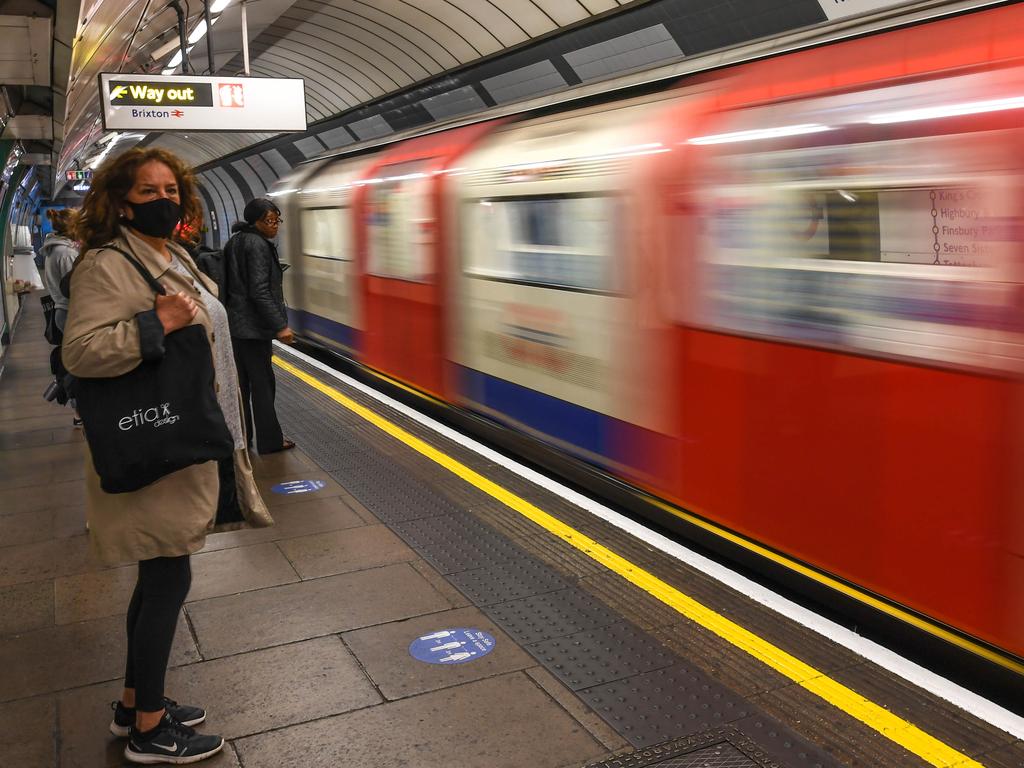Regulations go viral as Europe eases restrictions
Belgians must choose a ‘social bubble.’ Italian cafe customers must wear masks when standing but not when sitting. The new coronavirus rules are baffling Europeans as the continent goes into a familiar mode: regulatory overdrive.
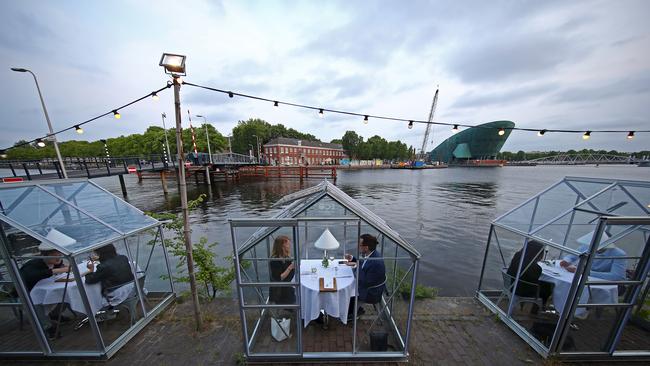
After parsing more than 100 pages of post-lockdown rules from Italian authorities, Roberto Bruno knew exactly what to do. He printed them out and plastered them all over his pizzeria and ice-cream shop, along with a banner.
“Basta Carta!” it read. “Enough paper!”
“My partner and I live on a diet of bread and decrees,” said Mr Bruno, who hasn’t resumed table service, although it’s now allowed, for fear of running afoul of a regulation. “One day they tell us one thing, and the next day something completely different.”
Among the rules he finds perplexing: Customers must wear face masks while standing up, but not while sitting down.
Then there is the requirement — or is it a recommendation? — that olive oil be served in single-use pouches, instead of bottles. “It makes me want to cry,” said Mr Bruno, who takes pride in his locally sourced extra-virgin olive oil.
Europe is lifting its lockdowns, but the new rules to battle the coronavirus are baffling Europeans as the continent goes into a familiar mode: regulatory overdrive.
Central governments, local authorities and health-and-safety regulators can all have their say, and do so often. The result is a patchwork of ever-changing rules that vary from country to country, from city to city, and sometimes even between neighbourhoods.
Wearing face masks is mandatory in some districts of Brussels, but not in others. You can be fined at one end of the street for not wearing a mask while people at the opposite end saunter mask-free.
Regulators are weighing in where sunbathers can lounge. They’re determining whether people can buy ice-cream cones. But no issue has stirred more regulations than whom Europeans are permitted to socialise with.
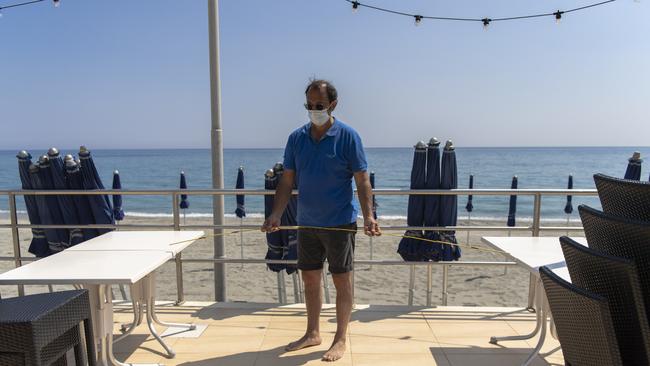
In Britain, different households are allowed to mix, but only in parks or private gardens.
Authorities in Scotland advise people who have to pass through a friend’s house to reach the garden not to touch anything or use the toilet, and to bring their own cutlery to a barbecue.
In Belgium, people can once again visit each other’s homes, but they have to nominate a set number of friends and can invite only those same guests to dinner again and again. The “social bubble” rule, as it’s called, causes frustration among friends and relatives, who must choose with whom they will bubble.
For the past three months, Geoffrey Roucourt, a civil servant in Brussels, hasn’t been able to visit his mother in southern Belgium. At first it was because of the lockdown. Then on May 10 Belgium instituted the bubble, limiting people to seeing four friends. His mother couldn’t decide which of her five children and grandchildren to leave out, “so none of us saw her yet,” said Mr Roucourt.
Moreover, he said, “I haven’t joined any other bubble because I want to keep my bubble for my mother.”
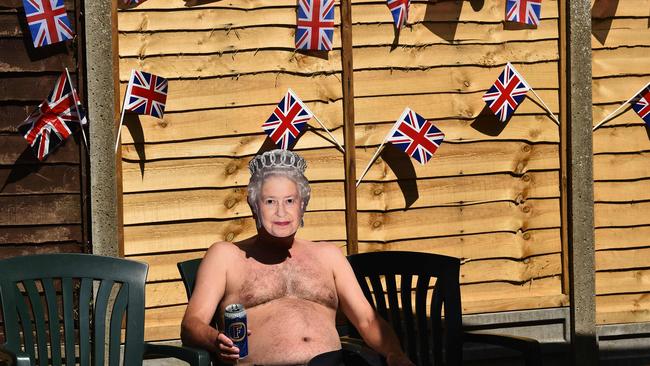
On Monday, Belgium tinkered with its rules, raising the number of people you can have in your bubble to 10. Mr Roucourt quickly decided to reunite with his mother and other relatives in her garden next Sunday.
“It’s good they relaxed the social bubble rules, but they are still complicated,” he said. “You have to count all the time who you’re meeting, every week.”
Belgium is busy refining other rules as well. It recently allowed residents to go shopping in a neighbouring country — provided they can demonstrate that the nearest equivalent Belgian shop is at least 15km away.
In the municipality of Baarle-Nassau, the border between Belgium and the Netherlands passes through a clothing store. The store now must observe different post-lockdown rules on different sides. Dutch authorities allow shops to open earlier than Belgium, leaving the shopkeeper to open half of the store, while blocking access to shelves on the Belgian side.
Farther north, Denmark relaxed its border restrictions for personal travel in late May, allowing romantic partners from a neighbouring country to visit, provided they can show photos or messages proving they’ve been together with a Dane for the past six months.
Protests from privacy advocates prompted the government to revise the rule. “If you say you are in a relationship and put it in writing, that is enough,” Justice Minister Nick Haekkerup told Danish television.
In warmer Southern Europe, a top priority is making the shore safe this summer. An early Italian plan to encase beachgoers in plexiglass walls was shelved after it caused a public uproar. So was a more eco-friendly alternative made of bamboo.
When Italian beaches reopened in late May, windsurfing was allowed but tanning was banned. Except at other beaches, where it was the other way around.
Most beaches now are allowed to have both activities. The government told local authorities to figure out how to prevent overcrowding.
In Lerici, a town of pastel houses on the Italian Riviera, Mayor Leonardo Paoletti spent months coming up with a plan. The rules are simple, he said: Some beaches are reserved for homeowners. Some are just for hotel guests. Everyone else can share what’s left.
All beachgoers must book a place on the sand ahead of time using a mobile-phone app.
No booking is necessary for the seafront rocks, however. The rocks are reserved for a limited number of homeowners and their relatives. They are required to show their ID cards, share their social-security numbers and hand over a signed declaration that they are entitled to sit on the rocks.
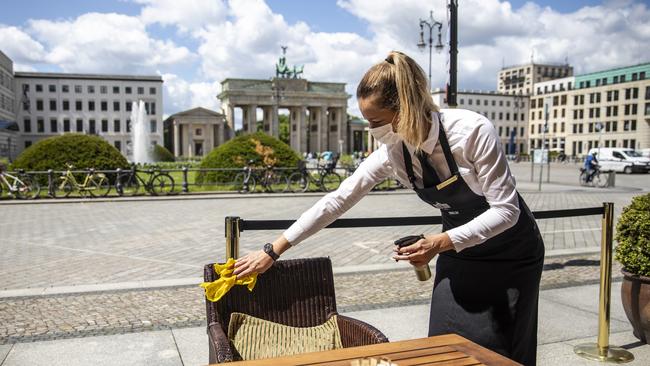
“Where the virus is, or not, is irrelevant. What matters is that there are rules, and the job of us mayors is to enforce those rules,” Mr Paoletti said.
Some rules confuse even the mayor. Take ice-cream cones. Rules on them vary widely across Europe. Many people don’t know whether they’re allowed or not.
In Lerici, some gelato sellers were reprimanded by the central government’s regional representative office for offering cones instead of only paper cups.
“I don’t see why,” said Mr Paoletti.
As far as he is concerned, ice cream can be served in cones.
“At this point, nothing makes sense to me anymore,” he said.
Amid all the regulating, a few in Europe complain that the rule makers have left them out. “We are the forgotten ones during the crisis,” the Union for Organised Independent Sex Workers wrote in an open letter to the Belgian Prime Minister.
On Monday, in a bid to get back to work, the union proposed its own set of rules.
The Wall Street Journal

